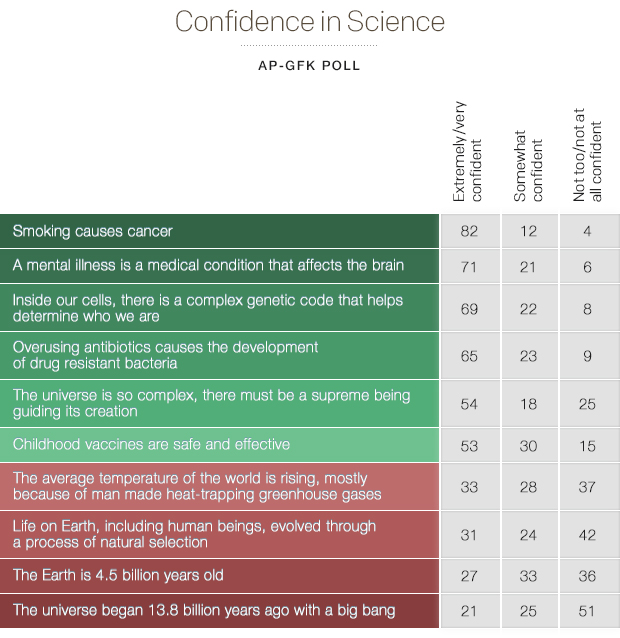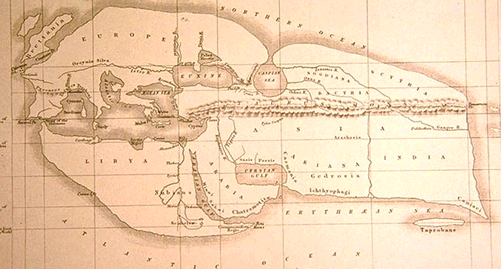Adam, Eve, and the Gospel
by Richard Davis, and Paul Franks
Here is the link to the original article in Enrichment, a journal for ministers in the Assemblies of God.
Here are a few notes about “Adam, Eve and the Gospel” and a few assumptions where it falters. One can happily deny the “literal” existence of Adam and Eve, without denying the actual existence of Adam and Eve, just as one can deny, like Augustine did, that the creation story is literal without denying that God created the universe and everything in it according to Genesis one and two.
If the essay above is meant to offer some comfort to those who believe in a literal Adam and Eve, we first have to ask what “literal” means with a bit more precision. I’m not going to do that here but note that when we use the word “literally,” we most often use it metaphorically. See this article in The Economist from November, 2013. I quote, “…if ‘tree’ and ‘rock’ aren’t metaphors, nearly everything else in our vocabulary seems to be.” When we talk of a literal Adam and Eve we mean the people “The Book” says, who are probably not a whole lot like the real people we imagine they are. Literarily, they serve a function that is contested among different groups, and the authority card seems especially inappropriate here.
Now before going down that rabbit hole, of what the “real” Adam and Eve were like, I would like to note a logical gaff that leapt out to me immediately. In the sixth paragraph, “Although not specifically named, anyone with a passing familiarity of the Creation story knows whom Jesus is talking about [in Mark 10:2-9]. The ‘them’ are Adam and Eve (Genesis 1.27).” I would like to give Davis and Franks a pass here, but is that really true? They are the ones making claims to being literal, yet don’t they realize the possibilities of that little statement of Christ? Easily, and most generally, the statement could refer to the first of our kind, but was Christ referring to Adam and Eve? That is a leap of faith, an interpretation, not a literal reading of the Scriptures. Christ was obviously referring to those of our race for whom marriage was based on fidelity. But are those people necessarily Adam and Eve? If as the Scripture allows, Jesus wasn’t speaking specifically about Adam and Eve, then the quandary Davis and Franks cook up disappears.
Davis and Franks then take us to the logic of the “Fall,” a fall, by the way which isn’t a literal reading of the Scripture because the Scripture nowhere states there is a fall. The Fall is, like the Trinity, a second-order theological object. The Trinity has a good history, and solid corroboration in the Scriptures, but the Fall is an object imposed on the Scriptures because of the concept of causation. First let’s look at the passage Davis and Franks give us, then at the problem of causation. They give us Romans 5:12, usually the go-to passage for those who wish to pronounce the blame on Adam. But logically it breaks down differently.
The passage is a conclusion to a previous argument that we’re not going to trace: “Therefore, just as sin came into the world through one man, and death through sin, and so death spread to all men because all sinned—“ ESV. Davis and Franks build the case through this scripture that Adam is the cause for our sin. But they stray in order to make the case for this. The translations are fairly literal, and all revolve around two clauses. The first clause, “sin came into the world through one man, and death through sin” states that Adam was the first. Okay, fine. The second clause contradicts Davis and Franks by stating that “so death spread to all men because all sinned.” Rewrite that in better English, and it becomes “so, because all sinned, death spread to all men.” The causal link is broken between Adam’s sin and ours in the very passage Davis and Franks wish to use to prove that there is a causal link. Adam is the first, and when Paul follows in verse 14a with “Yet death reigned from Adam to Moses, even over those whose sinning was not like the transgression of Adam.” If the transgression was not like that of Adam, did they cook it up on their own? There seems to be a disconnect that prevents any causal link. Adam was first in sin, while Christ is first in redemption. That is the context of the passage in Romans 5. The problem is with defining why we sin.
Paul does make a causal argument in 5:15, and that seems to contradict my conclusion above. But, let’s keep both these suppositions in our mind at once and try to see what comes of it. If we are literalists, we need to read 5:12 through 5:15, but that does damage to 5:12 if we think that it is the sin itself that is transmitted. This brings up the problem of inheritance.
We know more about inheritance, especially genetic inheritance, than our predecessors. Nothing material science tells us allows the transmission of sin. But this is the weakest argument. That doesn’t answer the question for us, but it sets a form of groundwork. With it, and the Scripture, I will argue that transmission of sin by genetic inheritance is unreasonable, a break with God’s intent, and contrary to plain statements of Scripture.
Keeping 5:12 and 5:15 in mind, let’s look at Ezekiel 18. This chapter is the most thorough compendium on the inheritance of sin available in the scriptures. Its conclusion is blisteringly clear. There is no inheritance of sin, or of righteousness either. In support of Rom. 5:12 each man dies for his own sin, not the sin of his father or his son. So according to Ezekiel, sin is not part of the inheritance of Adam.
There is a passage that seems to contradict Ezekiel 18 in Numbers 14:18 “The LORD is slow to anger and abounding in steadfast love, forgiving iniquity and transgression, but he will by no means clear the guilty, visiting the iniquity of the fathers on the children, to the third and the fourth generation.”
But he is not punishing the children, children’s children or, grandchildren for their own sins, which if Ezekiel is correct they are not at fault for, but for the sins of the fathers. Even this case would not require any transmission of sin, only residual punishment. This is an easy sociological question to suggest an answer for. The answer is that the destruction to social well being done by the father may take generations to ameliorate. They inherit the consequences of the sin, not the sin itself. Ezekiel is intact. The children’s sin is not the cause of the punishment laid on their father, though the sin of the father is the cause of the punishment of his progeny. Even though they are bearing the punishment of the father’s sin, the children to four generations who sin will also suffer the consequences of their own sin.
The results of sin can be passed on, but I see no reason to think that the cause for sin passes on, except of course the possibility that sin has something to do with being human equivalent to the capacity Adam had when he sinned. For those who wish to break this debate into its tried and worn categories, that is that people are born evil, neutral, or good; I think those categories should be abandoned. Even now we know so little of what it means to be human, those categories have nothing to do with what people are in some essential nature. It is rather a view of human behavior that is looking for an explanation. In other words, those categories are subsequent to the debate at hand serving as conclusions, not data we are looking at that will help us decide why we sin. In a circular fashion, if those conclusions are true, then, at least, people born evil explains why they sin.
But that leaves us in a moral dilemma. Even common human reason recognizes injustice when it sees it. Here’s the proposition that the determinists recognize perfectly well, but ignore. If we inherit the predilection to sin, and we sin because of that inheritance, then we are not at fault for that sin. If we are not at fault then we cannot be justly punished.
So looking for causality for sin harking back to Adam, we are left free of the burden of sinfulness and its subsequent effects, and God can’t justly hold us accountable. But God does hold us accountable for our sin, so there must be an element of free will, pure libertarian choice involved in the sin, so that we can be held accountable for it.
So the causality argument that Davis and Franks appeal to in order to secure the “literal” Adam and Eve, turns out to be a theological debacle that solves no riddles.
Happily, we do have something Adam had that we inherited. We have our humanity. If we sin because we have free will and the imagination to think more of our judgment than we ought to thereby straying from God’s path, then we, like Adam and Eve, will suffer the consequences of that sin. Thank God for Jesus who redeems us and gives us everything necessary for life and godliness.
But I know the determinists, neo-Calvinists and amateur logicians in our ranks will rankle at this argument. They will rehearse the worn out phrases that are supposed to make me happy with God’s injustice which is the result of their broken theology. I am free of that, responsible for my actions freely chosen.
The determinists, and partners to the fatalists of Buddhism, those who wish to cheat the study of human nature by accusing their progenitors for their own sins; those who wish to find a cause for every effect, have become deists. For them there is no God who is doing a new thing in the earth. There is no new life emerging from the ashes, there is no redemption, because God has already predetermined beforehand by a fixed causality, who is to be saved and who is to be lost. Ezekiel kicked them off that wagon, but many have hopped back on because of the feeling that their logic has abandoned them. Uncertainty and unresolved angst are too difficult to bear, and so they retreat to the certainties of their predecessors, remaining orthodox and wrong at the same time.
But like the thinkers in the Age of Reason, many of these folks do not know how to hold in tension the true things they have evidence for, and reduce the world to simple probably wrong formula. In the Age of Reason thinkers like Galileo Galilei aimed to destroy the authority of Aristotle because Aristotle had outlived his usefulness. His theories were no longer instructive, like the debate today between Calvin and Arminius. Why should we stick to the categories so ancient that they bear no resemblance to the modern ones? Are the modern ones better? Certainly, where they take into account data that were unavailable to our predecessors. For example, those who fight Darwinian evolution tooth and nail, are still fighting with tools developed in the nineteenth century and before; they use literalism, pre-atomic, and pre-geological sciences.
To finish my response to Davis and Franks’s waving of their arms, I say that the real Adam and Eve are, even in scientific circles, our progenitors, and that we have good evidence in materialist terms that whenever they lived, they were probably greatly unlike the people we imagine Genesis is telling us about but suffered the same malady we do, and that is, reason, the desire for knowledge, a robust sense of their own importance, and freedom to make mistakes. I would say to Davis and Franks keep puzzling this issue and don’t stop short of the truth. The puzzle of what in the scripture should be read word for word as truth, and what is metaphor is unresolved in your facile attachment to worn out theological objects. Your results should not drive the interpretation of your data.



